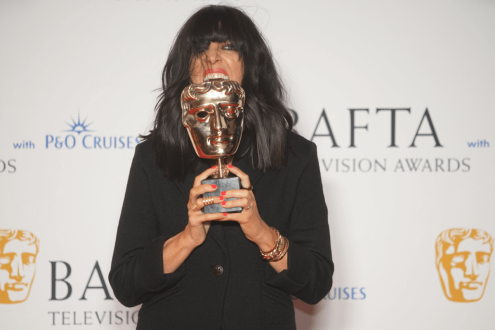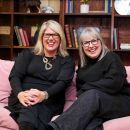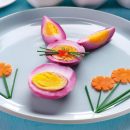‘I am terrified I might be an alcoholic’: One woman’s mission to ditch the habit
Does alcohol bring you more pain than pleasure? It can be hard to admit we have a problem but, as the sober curious movement gains momentum, people are coming out of the shadows to speak openly about the benefits of an alcohol-free life. Vee Sey shares her story…
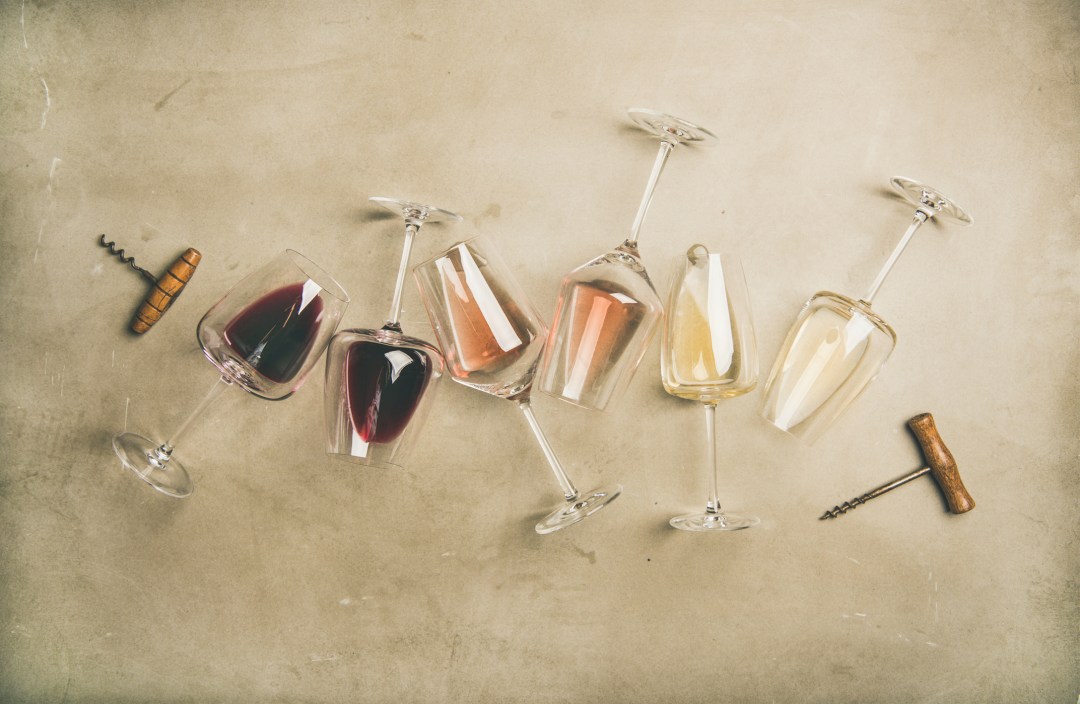
Twenty-eight days. I have given myself 28 days to change my relationship with alcohol, because I can no longer hide from the fact that my frenemy, Chardonnay, is stabbing me in the back with a rusty blade. I feel grubby inside, jaded and diminished, and sadly accustomed to a sluggish mind and aching body too many mornings a week. The words ‘Dry January’ are falling from the lips of millions of resolute people around the world who want to drink less, so I can do this undetected as a person who worries about her drinking and hide in plain sight. For 28 days.
Wine o’clock gets ever earlier – my time to unwind after a demanding day. ‘Mummy’s juice!’ my friends raise their glasses as we connect over our social lubricant, which makes me feel vivacious for one or two, before judgment is clouded, emotions run high and I am firing off regrettable texts. Before the hazy decline and ensuing depression, I see myself as the convivial bon viveur, a party girl… ‘Anything can happen when you’re around!’ my friends congratulate me. Until the entertainment goes too far, says something inappropriate, canoodles with the wrong person or becomes the barefoot fool at a work do. Intoxicated, with the emphasis on toxic. Ethanol – yes, the poison in car fuel – dumps embarrassment and melancholy at my door, and it no longer feels like an enjoyable, relaxing choice. Once I start, it can be a bottomless chalice. It makes me laugh, and then it always makes me cry.
I drink alone at home too, anaesthetising myself from the disillusionment of yet another break-up with a person who was more drinking buddy than partner, from work stress, from the pressures of parenthood and life. No one cares, I mutter self-pityingly, before I fall asleep downstairs, listening to mournful music and wondering why all my relationships fail, before waking zombie-like at 1am, misery and illness descending that will last all day.
Ruari Fairbairns, co-founder of One Year No Beer, a community for people who are questioning their relationship with alcohol, explains more about the indisputable link between alcohol and low mood: ‘Alcohol is kryptonite to mental health. There are people who are desperately trying to feel better by taking antidepressants who are making it ten times worse by drinking alcohol.’ He believes that taking a break from alcohol should be the first intervention for people with mental health issues. ‘I didn’t realise that I was using alcohol to numb out my ADHD brain,’ he shares, ‘and it was good at helping me silence the noise but, ultimately, although the highs were high, the lows were so low.
Is it in my blood?
I am terrified that I might be an alcoholic. I am the daughter of an alcoholic who made my childhood hell and I have always nursed an iron determination not to follow their selfish and damaging path, so how did I end up here? Because alcohol is a highly addictive substance, second only to heroin, and tumbling into misuse is a slippery slope on which I no longer have traction. Mental health aside, my passion for the job I love is dregs. I am overweight because I am unmotivated to make healthy choices and no amount of stodge fills the hollowness that alcohol leaves. My children are disappointed in me. The older one is drinking too much, continuing the pattern.
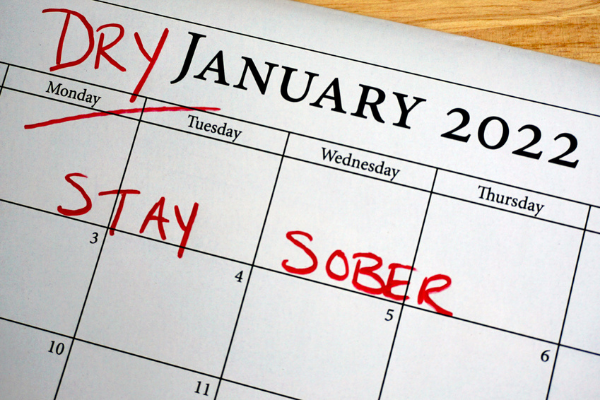 Was I always destined to be like my parent, then watch my offspring helplessly do the same? Michaela Weaver, The Alcohol Coach, wishes there was a ‘shake-up’ around the word alcoholic. She sees that the classification is a personal issue for me and one around which I have built a narrative. ‘We were all brought up thinking a person is either an alcoholic or they are not,’ says Weaver. ‘At one end is the “rock bottom” image of the person on the park bench drinking methylated spirits out of a brown paper bag, which stops us from addressing the problem. That is not real life. Real life is the individual leading a stressful life who finds themselves drinking at the end of the day to relieve stress, and that creeps up over time.’
Was I always destined to be like my parent, then watch my offspring helplessly do the same? Michaela Weaver, The Alcohol Coach, wishes there was a ‘shake-up’ around the word alcoholic. She sees that the classification is a personal issue for me and one around which I have built a narrative. ‘We were all brought up thinking a person is either an alcoholic or they are not,’ says Weaver. ‘At one end is the “rock bottom” image of the person on the park bench drinking methylated spirits out of a brown paper bag, which stops us from addressing the problem. That is not real life. Real life is the individual leading a stressful life who finds themselves drinking at the end of the day to relieve stress, and that creeps up over time.’
Weaver explains that watching your parents drink is a familial peer group pressure. ‘This is role-modelling that you will either follow or rebuff,’ she says. ‘In families of non-drinkers, a person might become a heavy drinker and in families of heavy drinkers, a person may decide they never want a drink in their life.’
‘I don’t believe in the term alcoholic,’ agrees Fairbairns. ‘The reality is that we all always question our relationship with alcohol. We wake up on a Sunday and think: “Why did I drink so much? What did I do? What did I say?” A huge number of people who might be labelled an addict for life switch off from the idea of transformation because they are told: “Sorry, you messed up, go and sit on the naughty step.”’ He believes that focusing on the benefits of taking a break make people feel good about themselves again. ‘It’s about creating a positive mindset that lets you take back control and make clear-sighted decisions,’ he says.
I see that I am mimicking my parent, but not because I was born with a ruinous disease. I also see that I have fallen into the trap of believing that alcohol will ease my emotional pain when it does the opposite. Feeling this way is not my fate, and I am empowered to make change. Twenty-eight days.
The journey begins
I have tackled a period of abstinence before with all the grit of a broken soul on New Year’s Day, until the weekend comes and I think sod it, I deserve a glass of wine. One Year No Beer sounds like a lifetime, so I opt for the shortest challenge. The Challengers’ group is on Facebook, which is otherwise awash with triggering images of glassy-eyed people drinking, but I ignore my feed and find joint purpose and solidarity in the closed network.
There are women like me who have flown too long with ‘the wine witch’ while their lives fell apart, partners who have drunk away families and jobs, forlorn people for whom alcohol is the gateway to other drugs. There are people embracing fitness – sweaty luminouseyed selfies at the top of hills are de rigueur – and delighting in psychedelic sunrises they have not seen for years. The atmosphere is uplifting and sincere, and supportive when someone admits they drank. They call it an accountability post, so that they can accept what happened and move forward. I like it here.
I download an app called EasyQuit that counts the minutes, hours and days since I last drank. It logs how my health is improving with every teeny milestone. It tells me how much money I am saving day by day and there are tips to beat the urge to drink. After 24 hours, my blood is free of alcohol and my glucose levels are normalising. That’s enough for now and, still suffering from the night before, I collapse into bed, reading posts on OYNB until I fall into an exhausted, yet tentatively hopeful, sleep.
‘Quit lit’ is the talk of the town on OYNB, so I fill my inner world with reading material and podcasts that bring revelations and give encouragement. With every day that passes, my mind and body feel lighter and I am sleeping better. I share online and am heartened by wise comments and congratulations on three days, five, a week… then two… It isn’t easy, white-knuckle cravings are real and there is no rosy tint on my spectacles, but I am not crossing off the days like a prisoner in a cell. I have been warned about profuse night sweats as the body detoxifies but, after a week or so, I find the opposite, and what I assumed to be the menopause disappears! Deep, restorative sleep is a priceless balm for my emotional state and I feel myself rallying.
I used to drink a stomach-curdling bottle of wine for dinner, declaring: ‘You can’t drink and eat without gaining weight,’ as if I had valuable insider knowledge, and my appetite returns to normal, if hungry, although I try to choose wisely because I feel clean and do not want to sully myself with junk. I read that others are struggling with sugar cravings, but the communal thinking is: As long as you don’t drink. Be kind to yourself. Eat all the cake. I allow myself treats, guilt-free, and consider the liquid calories I used to consume, which gives me licence to nourish myself to fullness. I am not hopping on the scale daily, but I struggle with emotional eating, so it pleases me to feel less bloated.
One evening, I am on autopilot stirring a puttanesca sauce after a demon of a day, and Keith Floyd’s chuckling face pops into my head, gulping down a glass of red in four sips, jollying about Italy with his hair dancing in the breeze. The urge to join him and be that girl – Patsy or Eddie! – is overwhelming, so I open a bottle of alcohol-free prosecco. It’s like grape juice, pleasant and fizzy, and I have it in my pretty, coloured flute. I drink half the bottle while cooking and take the rest for bath time, where I rest, read and top up my glass until it’s all gone. My younger child eyes my drink sadly, but I assure her it’s alcohol-free. I see a fl icker of respect, admiration even, on her face. ‘You are doing so well, Mum,’ she smiles, and perches on the edge of the bath for a chat. ‘Thank you,’ I reply, welling up. We are proud of me.
I wake refreshed, energised enough to exercise. I rise early and go to bed early now – sometimes, to make the day end and, sometimes, because sleep calls me insistently, beckoning me to heal in her arms. This day becomes the template for my weeks, although I don’t drink bubbles every day. Naughty Wednesday, which meant I gave myself permission to drink midweek, is still naughty, but with something fudgy, caramelly, or chocolatey…
The month is quiet socially, which eases the pressure and averts any questions about my not drinking. On the last Friday evening after work, my young copycat nips to the shop for beers. I ask him to bring me a bottle of zero so I can have a lager with him. I hear that familiar clink as he steps through the front door and he looks excited. He has four bottles of nought per cent. ‘I thought I’d try one of these babies with you,’ he grins. We drink our drinks, catch up on our days, then watch a family film, which I will remember from beginning to credits.
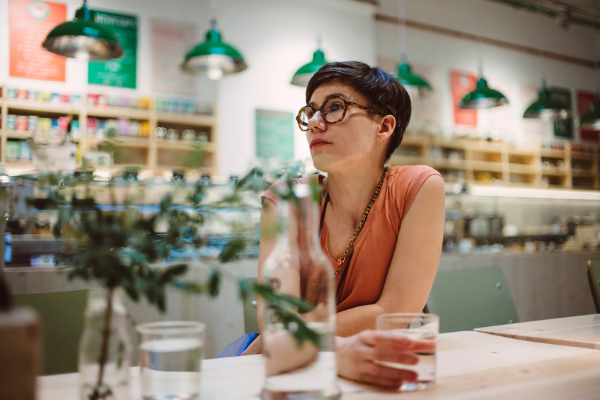 We three cuddle each other as we say goodnight and decide to take a walk in the morning to the little stone coffee shop that we like at the lock. I did it. My 28 days are done. But I do not want it to be over. This does not feel like an ending. This feels like a beginning…
We three cuddle each other as we say goodnight and decide to take a walk in the morning to the little stone coffee shop that we like at the lock. I did it. My 28 days are done. But I do not want it to be over. This does not feel like an ending. This feels like a beginning…
3 steps to alcohol-free success
Ruari Fairbairns’ stay-on-track hacks
1. Ride it out – A craving comes in a wave, then dissipates, so treat yourself like a toddler and use distraction: exercise or meditation. Sometimes, we want to press the eff-it button and exercise and meditation are at the bottom of the list… The fastest way to change your mental state is to change your physical state, so have a cold shower, which releases dopamine and fills the gap that you’re trying to fill, which is dopamine! Or try box breathing: Four seconds in, four seconds hold, four seconds out, four seconds hold. The craving will pass.
2. Have a placebo and rewire your brain – Most of your drinking is about what you think alcohol gives you and social cues. An alcohol-free alternative delivers the same things. It’s that time of the day, so you go to the fridge and open the door… There’s what looks like a bottle of beer, you open it like a bottle of beer, it smells like a bottle of beer, it tastes like beer, but there’s no alcohol in it. With an alcohol-free alternative, you are soothing 95 per cent of your psychological need without consuming alcohol. You are keeping that part of your brain satiated and you are teaching it, step by step: Ha! There was no alcohol in that and yet I feel relaxed, socially included and, yes, I’ve released dopamine. The brain wakes up the following day, feels good and makes the connection: no alcohol was involved.
3. Find a tribe – Society created our relationship with alcohol. We were watching it when we were in nappies and it was primed into our brain over decades: Celebrate, commiserate and congratulate with alcohol. Because of those expectations, you need a community if you are going to change. If you do it on your own, the instinctive brain says: ‘Wait a minute! You are leaving the tribe. Do you know how dangerous that is? Get back to the tribe and have a drink now!’ Your brain is trying to keep you safe. If you stay home, avoid your friends and don’t connect with people on the same journey as you, you will find it so much harder, consciously and subconsciously.
Next steps
Read: The Unexpected Joy Of Being Sober by Catherine Gray (Octopus, £9.99) is a witty, non-preachy and honest account of the author’s misadventures with alcohol and her discoveries about life without it. This is an enjoyable read, whether you are a devoted drinker, sober curious or suspect that you might have a problem.
Listen: The Alcohol Free Life podcast with Janey Lee Grace, the founder of The Sober Club, offers tips, advice and motivation in a non-judgmental and inspiring way, with the focus on self-care in sobriety.
Download: The I Am Sober app is a free sobriety tracker that asks you to make a morning pledge, with daily notifications for support. There is space for notes, plus a timer rolling over on your phone so you can monitor your progress.
Photographs: Getty Images

